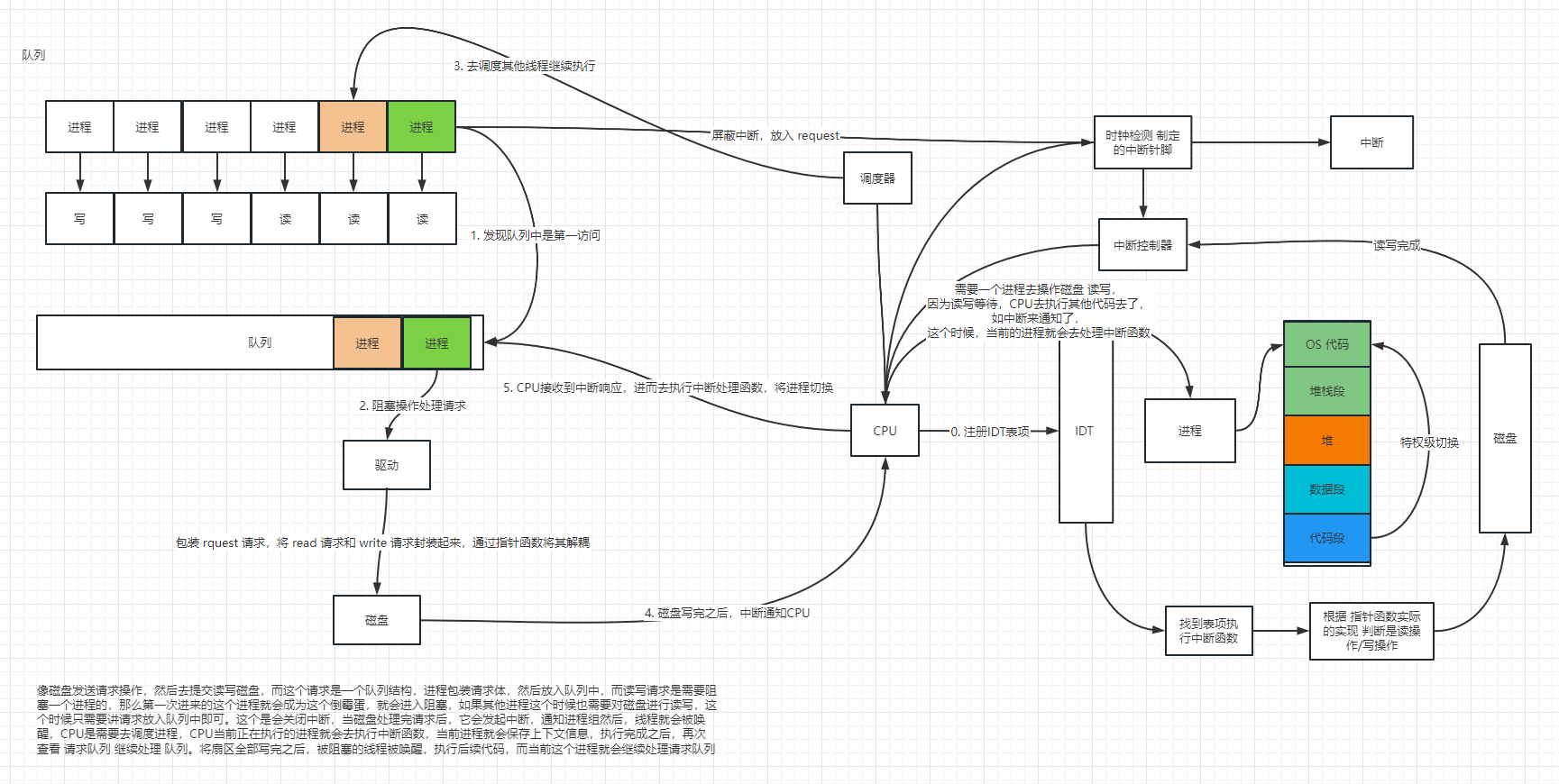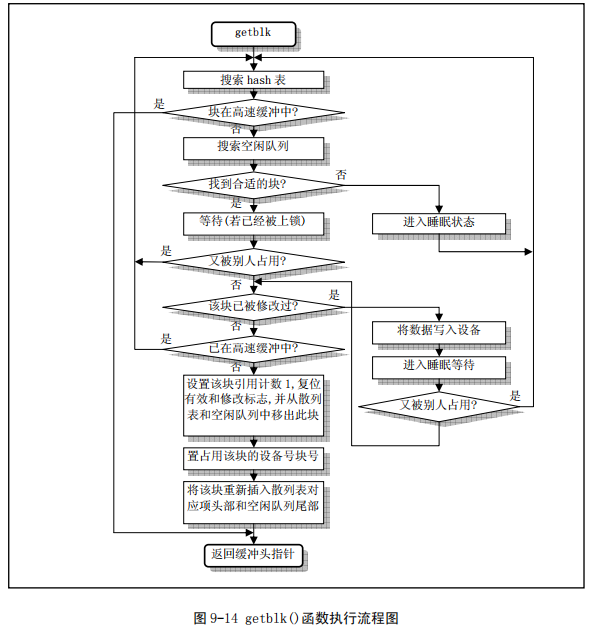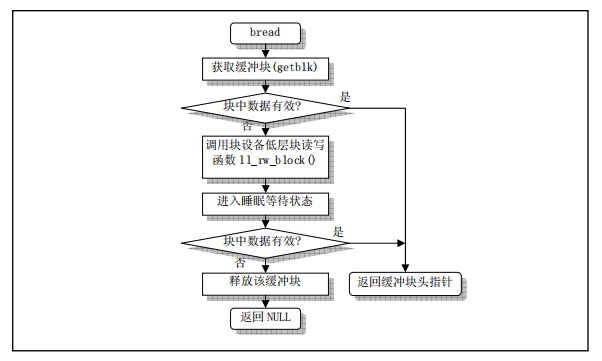操作系统初始化的时候,会初始化 hd_interrupt(函数指针) 中断处理函数
hd 是硬盘,rd 是软盘
如下我们讨论的是硬盘
write_intr 中断处理写函数指针
read_intr 中断处理读函数指针
end_request 是将处理完当前访问函数完成之后将其唤醒。而后调度器去唤醒进程。
; well, that went ok, I hope. Now we have to reprogram the interrupts :-(
; we put them right after the intel-reserved hardware interrupts, at
; int 0x20-0x2F. There they won't mess up anything. Sadly IBM really
; messed this up with the original PC, and they haven't been able to
; rectify it afterwards. Thus the bios puts interrupts at 0x08-0x0f,
; which is used for the internal hardware interrupts as well. We just
; have to reprogram the 8259's, and it isn't fun.
mov al,#0x11 ; initialization sequence
out #0x20,al ; send it to 8259A-1
.word 0x00eb,0x00eb ; jmp $+2, jmp $+2
out #0xA0,al ; and to 8259A-2
.word 0x00eb,0x00eb
mov al,#0x20 ; start of hardware int's (0x20)
out #0x21,al
.word 0x00eb,0x00eb
mov al,#0x28 ; start of hardware int's 2 (0x28)
out #0xA1,al
.word 0x00eb,0x00eb
mov al,#0x04 ; 8259-1 is master
out #0x21,al
.word 0x00eb,0x00eb
mov al,#0x02 ; 8259-2 is slave
out #0xA1,al
.word 0x00eb,0x00eb
mov al,#0x01 ; 8086 mode for both
out #0x21,al
.word 0x00eb,0x00eb
out #0xA1,al
.word 0x00eb,0x00eb
mov al,#0xFF ; mask off all interrupts for now
out #0x21,al
.word 0x00eb,0x00eb
out #0xA1,al
void hd_init(void)
{
blk_dev[MAJOR_NR].request_fn = DEVICE_REQUEST;
set_intr_gate(0x2E,&hd_interrupt);
outb_p(inb_p(0x21)&0xfb,0x21);
outb(inb_p(0xA1)&0xbf,0xA1);
}
#define DEVICE_REQUEST do_hd_request
// 中断处理指令,do_hd 表示是读还是写
_hd_interrupt:
pushl %eax
pushl %ecx
pushl %edx
push %ds
push %es
push %fs
movl $0x10,%eax
mov %ax,%ds
mov %ax,%es
movl $0x17,%eax
mov %ax,%fs
movb $0x20,%al
outb %al,$0xA0 # EOI to interrupt controller #1
jmp 1f # give port chance to breathe
1: jmp 1f
1: xorl %edx,%edx
xchgl _do_hd,%edx // do_hd write_intr/read_intr
testl %edx,%edx
jne 1f
movl $_unexpected_hd_interrupt,%edx
1: outb %al,$0x20
call *%edx # "interesting" way of handling intr.
pop %fs
pop %es
pop %ds
popl %edx
popl %ecx
popl %eax
iret
// 发送包装请求
void do_hd_request(void)
{
int i,r;
unsigned int block,dev;
unsigned int sec,head,cyl;
unsigned int nsect;
INIT_REQUEST;
dev = MINOR(CURRENT->dev);
block = CURRENT->sector;
if (dev >= 5*NR_HD || block+2 > hd[dev].nr_sects) {
end_request(0);
goto repeat;
}
block += hd[dev].start_sect;
dev /= 5;
__asm__("divl %4":"=a" (block),"=d" (sec):"0" (block),"1" (0),
"r" (hd_info[dev].sect));
__asm__("divl %4":"=a" (cyl),"=d" (head):"0" (block),"1" (0),
"r" (hd_info[dev].head));
sec++;
nsect = CURRENT->nr_sectors;
if (reset) {
reset = 0;
recalibrate = 1;
reset_hd(CURRENT_DEV);
return;
}
if (recalibrate) {
recalibrate = 0;
hd_out(dev,hd_info[CURRENT_DEV].sect,0,0,0,
WIN_RESTORE,&recal_intr);
return;
}
if (CURRENT->cmd == WRITE) {
hd_out(dev,nsect,sec,head,cyl,WIN_WRITE,&write_intr);
for(i=0 ; i<3000 && !(r=inb_p(HD_STATUS)&DRQ_STAT) ; i++)
/* nothing */ ;
if (!r) {
bad_rw_intr();
goto repeat;
}
port_write(HD_DATA,CURRENT->buffer,256);
} else if (CURRENT->cmd == READ) {
hd_out(dev,nsect,sec,head,cyl,WIN_READ,&read_intr);
} else
panic("unknown hd-command");
}
static void read_intr(void)
{
if (win_result()) {
bad_rw_intr();
do_hd_request();
return;
}
port_read(HD_DATA,CURRENT->buffer,256);
CURRENT->errors = 0;
CURRENT->buffer += 512;
CURRENT->sector++;
if (--CURRENT->nr_sectors) {
do_hd = &read_intr;
return;
}
end_request(1);
do_hd_request();
}
static void write_intr(void)
{
if (win_result()) {
bad_rw_intr();
do_hd_request();
return;
}
if (--CURRENT->nr_sectors) {
CURRENT->sector++;
CURRENT->buffer += 512;
do_hd = &write_intr;
port_write(HD_DATA,CURRENT->buffer,256);
return;
}
end_request(1);
do_hd_request();
}
static void hd_out(unsigned int drive,unsigned int nsect,unsigned int sect,
unsigned int head,unsigned int cyl,unsigned int cmd,
void (*intr_addr)(void))
{
register int port asm("dx");
if (drive>1 || head>15)
panic("Trying to write bad sector");
if (!controller_ready())
panic("HD controller not ready");
do_hd = intr_addr;
outb_p(hd_info[drive].ctl,HD_CMD);
port=HD_DATA;
outb_p(hd_info[drive].wpcom>>2,++port);
outb_p(nsect,++port);
outb_p(sect,++port);
outb_p(cyl,++port);
outb_p(cyl>>8,++port);
outb_p(0xA0|(drive<<4)|head,++port);
outb(cmd,++port);
}
获取一个空闲块
/*
* Ok, this is getblk, and it isn't very clear, again to hinder
* race-conditions. Most of the code is seldom used, (ie repeating),
* so it should be much more efficient than it looks.
*
* The algoritm is changed: hopefully better, and an elusive bug removed.
*/
#define BADNESS(bh) (((bh)->b_dirt<<1)+(bh)->b_lock)
struct buffer_head * getblk(int dev,int block)
{
struct buffer_head * tmp, * bh;
repeat:
if ((bh = get_hash_table(dev,block)))
return bh;
tmp = free_list;
do {
if (tmp->b_count)
continue;
if (!bh || BADNESS(tmp)<BADNESS(bh)) {
bh = tmp;
if (!BADNESS(tmp))
break;
}
/* and repeat until we find something good */
} while ((tmp = tmp->b_next_free) != free_list);
if (!bh) {
sleep_on(&buffer_wait);
goto repeat;
}
wait_on_buffer(bh);
if (bh->b_count)
goto repeat;
while (bh->b_dirt) {
sync_dev(bh->b_dev);
wait_on_buffer(bh);
if (bh->b_count)
goto repeat;
}
/* NOTE!! While we slept waiting for this block, somebody else might */
/* already have added "this" block to the cache. check it */
if (find_buffer(dev,block))
goto repeat;
/* OK, FINALLY we know that this buffer is the only one of it's kind, */
/* and that it's unused (b_count=0), unlocked (b_lock=0), and clean */
bh->b_count=1;
bh->b_dirt=0;
bh->b_uptodate=0;
remove_from_queues(bh);
bh->b_dev=dev;
bh->b_blocknr=block;
insert_into_queues(bh);
return bh;
}
/*
* Why like this, I hear you say... The reason is race-conditions.
* As we don't lock buffers (unless we are readint them, that is),
* something might happen to it while we sleep (ie a read-error
* will force it bad). This shouldn't really happen currently, but
* the code is ready.
*/
struct buffer_head * get_hash_table(int dev, int block)
{
struct buffer_head * bh;
for (;;) {
if (!(bh=find_buffer(dev,block)))
return NULL;
bh->b_count++;
wait_on_buffer(bh);
if (bh->b_dev == dev && bh->b_blocknr == block)
return bh;
bh->b_count--;
}
}
如果当前空闲块是否被使用过,如果里面有数据则刷新到磁盘,如果没有返回当前空闲块
/*
* bread() reads a specified block and returns the buffer that contains
* it. It returns NULL if the block was unreadable.
*/
struct buffer_head * bread(int dev,int block)
{
struct buffer_head * bh;
if (!(bh=getblk(dev,block)))
panic("bread: getblk returned NULL\n");
if (bh->b_uptodate)
return bh;
ll_rw_block(READ,bh);
wait_on_buffer(bh);
if (bh->b_uptodate)
return bh;
brelse(bh);
return NULL;
}
将当前缓冲区刷新到设备中。
int sync_dev(int dev)
{
int i;
struct buffer_head * bh;
bh = start_buffer;
for (i=0 ; i<NR_BUFFERS ; i++,bh++) {
if (bh->b_dev != dev)
continue;
wait_on_buffer(bh);
if (bh->b_dev == dev && bh->b_dirt)
ll_rw_block(WRITE,bh);
}
sync_inodes();
bh = start_buffer;
for (i=0 ; i<NR_BUFFERS ; i++,bh++) {
if (bh->b_dev != dev)
continue;
wait_on_buffer(bh);
if (bh->b_dev == dev && bh->b_dirt)
ll_rw_block(WRITE,bh);
}
return 0;
}
static inline void wait_on_buffer(struct buffer_head * bh)
{
cli();
while (bh->b_lock)
sleep_on(&bh->b_wait);
sti();
}
向设备发起读写请求
void ll_rw_block(int rw, struct buffer_head * bh)
{
unsigned int major;
if ((major=MAJOR(bh->b_dev)) >= NR_BLK_DEV ||
!(blk_dev[major].request_fn)) {
printk("Trying to read nonexistent block-device\n\r");
return;
}
make_request(major,rw,bh);
}
构建请求
static void make_request(int major,int rw, struct buffer_head * bh)
{
struct request * req;
int rw_ahead;
/* WRITEA/READA is special case - it is not really needed, so if the */
/* buffer is locked, we just forget about it, else it's a normal read */
if ((rw_ahead = (rw == READA || rw == WRITEA))) {
if (bh->b_lock)
return;
if (rw == READA)
rw = READ;
else
rw = WRITE;
}
if (rw!=READ && rw!=WRITE)
panic("Bad block dev command, must be R/W/RA/WA");
lock_buffer(bh);
if ((rw == WRITE && !bh->b_dirt) || (rw == READ && bh->b_uptodate)) {
unlock_buffer(bh);
return;
}
repeat:
/* we don't allow the write-requests to fill up the queue completely:
* we want some room for reads: they take precedence. The last third
* of the requests are only for reads.
*/
if (rw == READ)
req = request+NR_REQUEST;
else
req = request+((NR_REQUEST*2)/3);
/* find an empty request */
while (--req >= request)
if (req->dev<0)
break;
/* if none found, sleep on new requests: check for rw_ahead */
if (req < request) {
if (rw_ahead) {
unlock_buffer(bh);
return;
}
sleep_on(&wait_for_request);
goto repeat;
}
/* fill up the request-info, and add it to the queue */
req->dev = bh->b_dev;
req->cmd = rw;
req->errors=0;
req->sector = bh->b_blocknr<<1;
req->nr_sectors = 2;
req->buffer = bh->b_data;
req->waiting = NULL;
req->bh = bh;
req->next = NULL;
add_request(major+blk_dev,req);
}
向队列中添加请求
/*
* add-request adds a request to the linked list.
* It disables interrupts so that it can muck with the
* request-lists in peace.
*/
static void add_request(struct blk_dev_struct * dev, struct request * req)
{
struct request * tmp;
req->next = NULL;
cli();
if (req->bh)
req->bh->b_dirt = 0;
if (!(tmp = dev->current_request)) {
dev->current_request = req;
sti();
(dev->request_fn)();
return;
}
for ( ; tmp->next ; tmp=tmp->next)
if ((IN_ORDER(tmp,req) ||
!IN_ORDER(tmp,tmp->next)) &&
IN_ORDER(req,tmp->next))
break;
req->next=tmp->next;
tmp->next=req;
sti();
}
执行设备函数
struct blk_dev_struct {
void (*request_fn)(void);
struct request * current_request;
};


